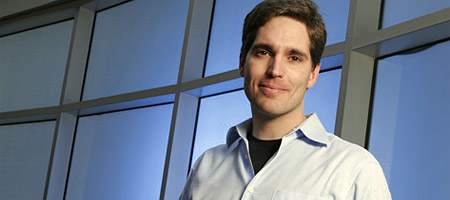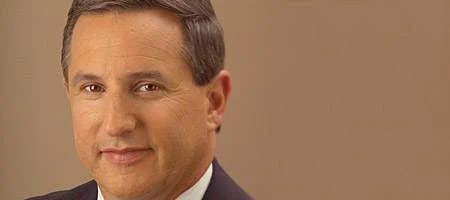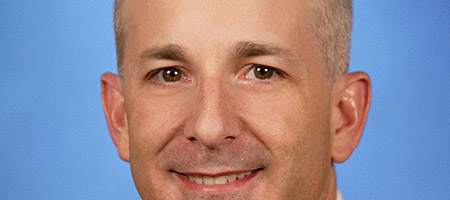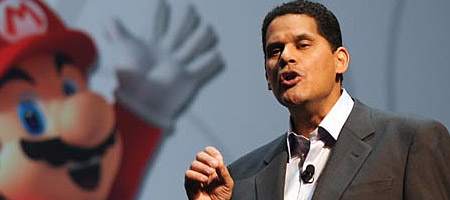Feature – Despite the troubled state of the economy, 2008 was a year of great change and successful leadership. Here is TG Daily’s list of the year’s top achievers.
Blaming failure or crediting success to a single person is always a difficult task, especially when we talk about companies whose performance relies on hundreds or thousands of employees. But there is no doubt that this industry has fascinating and inspiring personalities whose vision and drive for change is impacting the way we use technology today and in the future.
There are countless people in this industry who deserve to be recognized, but based on their exposure and leadership, here are those who we believe had the most impact on technology in 2008. Feel free to chime in at the end of this article.
10. Jason Kilar
CEO, Hulu

Operating a video site that is backed by major video and media content providers (NBC Universal, News Corp.) avoids many headaches, but the progress Hulu made in 2008 is impressive. The site has become strong enough to force Google’s YouTube into a new business model and is pioneering an attractive way to watch TV shows online. Kilar joined Hulu from Amazon.com, where he had developed the firm’s entry into the video business and headed up the company’s application software efforts. Comscore estimates that Hulu has about 24 million unique visitors who watch about 235 million videos per month. That translates into a market share of only 1.7% (as compared to 40% of YouTube), but it makes Hulu the sixth largest video site on the web. Will Hulu become the destination Joost wanted to be? Possibly. Keep an eye on Kilar’s site.
9. Jonathan Ive
Senior Vice President of Industrial Design, Apple

Apple is Steve Jobs and Steve Jobs is Apple. That is the impression we got when Jobs delivered one of his speeches over the past decade. A great new product idea? Steve Jobs had it. Great design? Yes, Jobs designed it. Despite this perception, we all know, of course, that this is not the case. There is a number of amazing people in Apple’s company that contributed to the firm’s success and would deserve much more visibility, but had to remain in the shadow of Jobs. This scenario is likely to change this year as we have first signs that Steve Jobs may be preparing his exit from Apple. It isn’t Phil Schiller, who is generally believed to succeed Jobs, whom we chose for our list, but Apple’s design guru Jonathan Ive. We tend to criticize Apple for its overpriced products – and praise the company for being able to sell its products with insane profit margins. This is mainly Ive’s fault: Technology often shows a trend of function being more important than form, but Ive leads the industry with being able to push the frontiers of form and function in every new Apple product. The iPhone, Apple’s increasingly important cash cow, is just one example. The company is often perceived to be design-focused and if that is truly important to the company, then Apple’s next CEO needs to be passionate about design. And we do not know anyone more suited for that job than Jonathan Ive.
8. Evan Williams
Co-founder and CEO, Twitter

Internet success is often based on perception. Williams has been, in our opinion, the master of creating perception in 2008. The reward for the growth of the site especially in 2008 and the perception of an enormous reach was rewarded with a $500 million acquisition offer from Facebook, which Williams and co-founder Jack Dorsey rejected. In fact, Twitter may be much smaller than you think: According to Comscore, the site has about 5 million monthly users, which puts it within the top 500 websites globally, or just about into the range of TG Daily’s former mother ship Tom’s Hardware. But Twitter is growing at an astonishing rate: The user base has reportedly been tripling every sixth months. And Twitter may be emerging from a niche into a mainstream product: Basically lightweight mechanism for pushing short 140 character messages, so-called tweets, to the Web and cellphones, Twitter made headlines when evening news anchors relied on tweets from Taj Mahal guests to post first account reports on the Mumbai terrorist attacks. Twitter recently secured $15 million in funding and has grown into a major social networking service in 2008.
Read on the next page: 7-4
7. Mark Hurd
CEO, Hewlett Packard

When Mark Hurd accepted the role of CEO at HP in 2005, shortly after the company had fired Carly Fiorina, expectations from the company were low. Declining revenue and falling morale, as well as a corporate scandal created one of the least attractive of its kind in the country. However, the former NCR CEO was able turn the giant HP back into the wind, overtake Dell in PC shipments and recently IBM in server volume, grow the services division organically and through a $14 billion acquisition of EDS, a company that holds numerous large-volume service contracts HP was competing for anyway. Despite recently announced layoffs, HP remains one of more healthy companies in today’s IT world. Hurd quietly grew the company to an industry giant that recently announced revenue growth of 19% and stable quarterly net profit of more than $2 billion. For the first time in its history, HP’s 2008 revenue is expected to sail past IBM’s sales: HP reported fiscal 2008 revenue of $118.4 billion, which is believed to be about 10% more than IBM’s estimated annual revenue (IBM will report numbers in January.)
6. Steven Sinofsky
Senior Vice President, Windows and Windows Live Engineering Group, Microsoft

Would you want to reinvent Windows Vista? Steven Sinofsky has exactly that job. Windows Vista is a considerable failure for Microsoft, surrendering market share to Microsoft’s rivals at a faster pace than ever before in Windows’ history. Windows’ market share is currently at a 15 year low. Sinofsky lowered expectations in the Vista successor by stating that the OS is built on top of Vista, but has done a superb job raising expectations again, indicating that Windows 7 may become the operating system Vista should have been – and ultimately correcting the mistakes his predecessor Jim Allchin made. Early Windows 7 builds suggest it will be more than a big Vista patch, with innovative features like a new taskbar with live task thumbnails and an optimized performance with a smaller memory footprint that should make Windows 7 a less demanding OS. Sinofsky scaled back the size of Windows development team and opened the development process by setting up a blog called Engineering Windows 7. At least at this time, Sinofsky represents a new generation of Microsoft leaders that signal a change in Microsoft’s business and product strategy. He is off to a fantastic start, but he needs to expand his efforts to reignite the enthusiasm for Windows, because we know that Microsoft needs to get this one right. There isn’t much room for failure.
5. Mitchell Baker
Chief Lizard Wrangler, Mozilla

What a year it was for Mozilla. Mitchell Baker, Chairwoman of Mozilla is the Silicon Valley darling of 2008. She was instrumental in the creation of the Mozilla Foundation when American Online shut down its Netscape division and reduced its involvement with the Mozilla project five years ago. She has been steering Mozilla through difficult business waters ever since and recently renewed a royalty deal with Google which gives the organization another lifeline of three years. The flagship product, Firefox, has been gaining market share at the expense of IE under Baker’s watch – at an accelerating pace: The browser is now used on more than 20% of all computers that are connected to the Internet, while it forced IE below 70% web usage share. Baker is the key personality of the 2008 browser year.
4. Andy Rubin
Director of Mobile Platforms, Google

Rubin, former Apple engineer and co-founder of Danger (sold to Microsoft), oversees the development of Google’s Android operating system for smartphones. Prior to joining Google, Rubin founded Android to develop an open-source operating system for MIDs, but Google quickly recognized its potential and acquired the company outright. Though more Android-powered handsets beyond T-Mobile’s G1 are yet to arrive, Rubin’s Android is now the most serious challenger to Apple’s iPhone OS. Rubin is busy extending the challenge to the mobile application store market with Android Market, Google’s version of Apple’s App Store. But there is a lot more to Android than meets the eye. We hear chatter about Android-powered netbooks allegedly coming out next year, which means that Android may become Google’s free desktop operating system the industry has been talking about for years. In any case, Android was Google’s most significant product release in several years.
Read on the next page: The top 3
3. Bill Gates
Co-founder and Chairman, Microsoft

You didn’t think we would forget about Bill Gates, did you? That said, Gates is on this list not because of his 2008 achievement, but because of his significance for the industry as a whole and his decision to retire from his full-time participation in Microsoft earlier this year. Consider it a lifetime-achievement award. He founded Microsoft in 1975 and tremendously impacted the way we use the computers that are in our offices, briefcases and living rooms today – he turned the PC into a commodity. It is unlikely that Gates will disappear from the technology stage anytime soon. He will remain visible through his charity as well as a mysterious new “think tank” called “bgC3”.
2. Reggie Fils-Aime
President and Chief Operating Officer, Nintendo of America

Three years ago, there were few who were willing to put their bets on Nintendo and its role in the video game console war with Microsoft and Sony. Sony dominated, Microsoft tried to figure out its direction and Nintendo ended up as the company no one saw coming. Reggie Fils-Aime is the charismatic face behind the stunning success of the Wii in the U.S., outselling Microsoft by a factor of 3:1 and Sony by 5:1. Of those 34.0 million current-gen game consoles sold, 15.5 million consoles carried the Wii logo. Both the Wii and the handheld DS differentiate themselves from its rivals with a unique user concept and unique content that attracts a much larger user base than traditional gaming devices. 2008 may be remembered as the year that brought video consoles not just to teenagers, but to parents and grandparents as well. Microsoft has made impressive progress in this space with its aging Xbox 360 platform as well, expanding the game console beyond video games. However, we have no doubt that Fils-Aime and Nintendo are driving this new gaming trend in the U.S. at this time.
1. Elon Musk
Co-founder, SpaceX; Chairman, Tesla; Chairman SolarCity

In the end, the top spot in our list was pretty clear. Elon Musk, PayPal co-founder, is our most important person in technology in 2008. Musk leads rocket developer SpaceX, electric car company Tesla and solar energy company SolarCity – three key efforts that have the potential to significantly shape this country’s future in space and green technology. SpaceX recently signed a $1.6 billion contract to provide rockets to NASA for 20 ISS service flights between 2009 and 2016. Tesla is considered to be the most promising electric car manufacturer in U.S. and SolarCity is believed to be is the largest provider of residential solar power in California. Musk founded SpaceX in 2002, is the principal owner of Tesla and the primary investor in SolarCity. The proceeds from the sale of companies he founded – $307 million from Zip2 in 1999 and $1.5 billion from PayPal in 2002 – enabled him to venture into the areas of his interest: Internet, clean energy and space. Musk had a breakthrough year in 2008 and the future looks bright.






